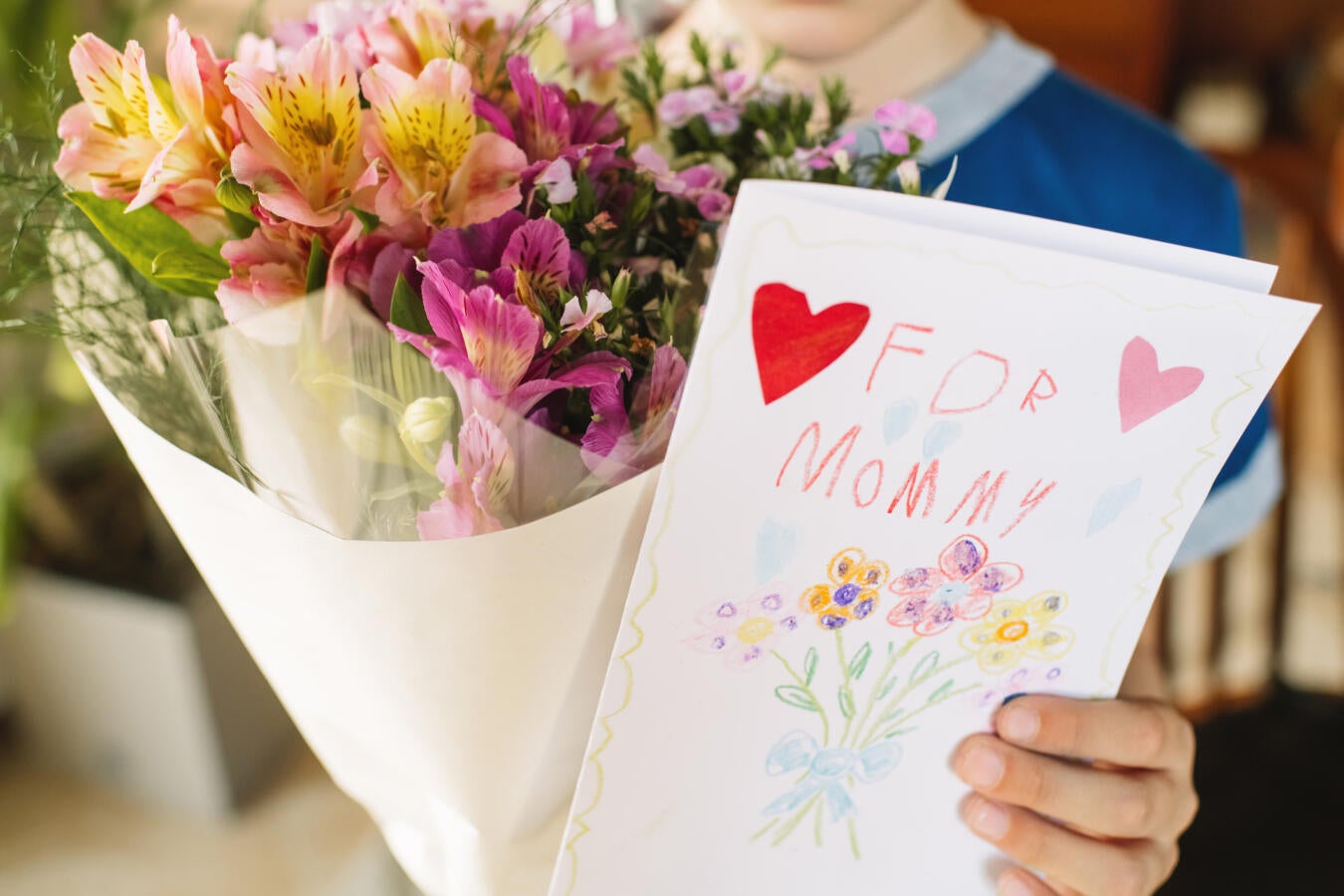Today, Mother’s Day in the United States and most of the rest of the world is a secular holiday. Participants celebrate the women who raised (or are raising) them with cards, flowers and other tokens of appreciation. Should Jews celebrate it? Most have no objection, though there are some who refrain.
A Secular Holiday
Mother’s Day in its modern form was first established in the early 20th century by Anna Jarvis, who wanted to honor her own mother’s legacy and the broader role of motherhood in society. To Jarvis, Mother’s Day was a Christian liturgical event, to be celebrated on Sunday in church. But when President Woodrow Wilson officially established it as an American holiday in 1914, the path to commercialization and secularization was short (to Jarvis’ dismay).
Today, the vast majority of American Jews regard Mother’s Day as a secular occasion that embodies a value hardly foreign to Jewish tradition: honoring one’s mother. It’s not only a value, it’s in fact a Jewish requirement. In the Ten Commandments, the Torah adjures Jews to honor their mother (and their father). It is the only one the Ten Commandments which has a reward attached to observance — a long life.
Because Mother’s Day is now secular and its purpose is consonant with Jewish values, celebrating is not controversial for most Jews. But for a small minority of Jews, the embrace of any non-Jewish holiday poses challenges. Leviticus 18:2 states: “You shall not copy the practices of the land of Egypt where you dwelt, or of the land of Canaan to which I am taking you; nor shall you follow their laws. My rules alone shall you observe, and faithfully follow My laws: I the Lord am your God.” This is generally understood to prohibit copying non-Jewish practices, in everything from holidays to fashion, and this may include Mother’s Day.
With your help, My Jewish Learning can provide endless opportunities for learning, connection and discovery.
Jewish Ways to Celebrate Mothers
The Jewish calendar offers a weekly opportunity to honor women, many of whom are mothers, on Shabbat. It’s traditional in many households to sing Eshet Hayil, “A Woman of Valor” (Proverbs 31), on Friday night — an ancient song praising the industrious, wise and loving matriarch of the home. In some families, Eshet Hayil may feel more personal and spiritually resonant than a Hallmark card, and the opportunities to express the sentiment come every seven days rather than once per year.
Another Jewish opportunity to reflect on motherhood comes yearly on the 11th day of the Jewish month of Cheshvan, traditionally understood as the day the matriarch Rachel died in childbirth. The Torah records that Rachel wanted, more than anything, to be a mother. After years of infertility, in a moment of desolation, she said to her husband, “Give me children or I will die.” (Genesis 30:1) Her wish was at long last granted when her first son was born. Rachel named him Joseph, which means “another one” — a plea to God that she would become a mother again. This wish was also granted when she became pregnant with Joseph’s brother Benjamin but, cruelly, she died in childbirth and never got to raise him. Rachel, for Jews, embodies the desperate longing, wondrous joy and excruciating heartbreak that motherhood may entail. She is often referred to as Rachel imeinu — Rachel our mother — a maternal figure for all Jews.



